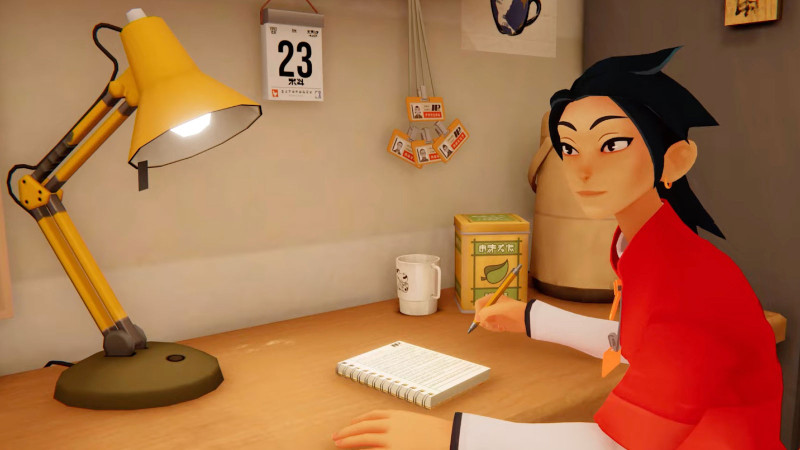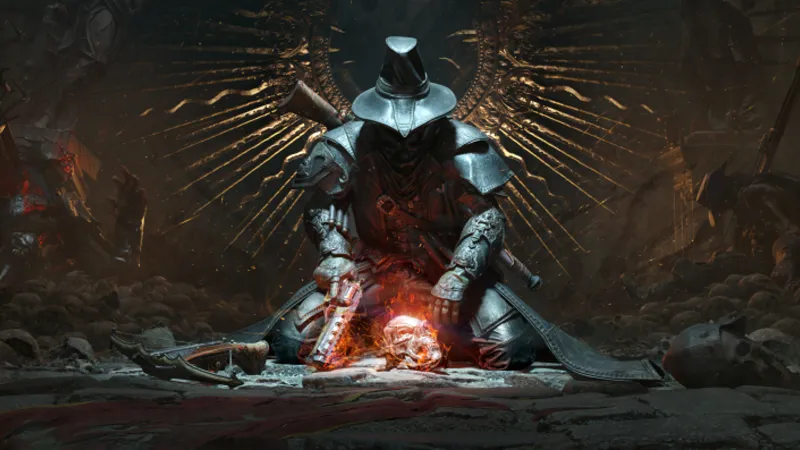Two days after returning home from my vacation in Japan, Tokyo-based developer Nagai Industries Inc. released a trailer for its upcoming adventure game, InKonbini: One Store. Many Stories, and I was immediately taken back to my convenience store (“konbini” is Japanese for convenience stores, generally) adventures days prior. From Lawson’s excellent spicy chicken to 7-Eleven’s life-altering egg salad sandos, convenience stores in Japan are incredible, as strange as that is to write. InKonbini is a ’90s love letter to the konbinis of Japan, and after speaking with Nagai Industries founder Dima Shen about InKonbini, I couldn’t be more sold.
InKonbini puts players in the shoes of college student Makoto Hayakawa, who is taking a break from her studies to help her aunt run a small-town konbini. Nagai describes the game, due out on undetermined consoles and PC in 2025, as a “meditative narrative adventure/simulation game,” where, while playing, you discover the joy and wonder hidden behind the daily routine of a konbini worker. The idea began as a “Summer Project,” which is also the working title for InKonbini, between two friends. Shen’s friend was planning to move to Argentina, giving them one last chance to work closely together, “so I offered him to try and make a game in the span of one summer.” Today, Nagai has eight full-time employees and a few others working on the game.
Shen says their conversations led them to develop something “beautiful and cozy, with a positive mood, but also a bit sad,” like mixing the works of Hayao Miyazaki and Makoto Shinkai. Shen tells me Japanese culture describes these mixed sentiments as mono-no-aware, which can be translated as “the sad beauty of mundane things.” After several iterations, Nagai landed on the 1990s konbini, and Shen got goosebumps the second this idea was born. Those goosebumps might have also resulted from Shen remembering the bright and welcoming konbini of Shenmue, one of his all-time favorite games (Nagai Industries is the cover-up name for a Yakuza group in one of the game’s locations).
Shen says Nagai aims to challenge and confront the notion that a developer can’t convert this occupation into a meaningful and exciting gameplay experience. The game’s trailer indicates InKonbini will have the kind of gameplay you’d expect in the shoes of a convenience store employee. But at the same time, Nagai expects players to find joy (and many other emotions) in the meta-gameplay born out of the other element of working at a konbini: talking to customers.
“The game is being built around a traditional Japanese concept of ‘ichi-go, ichi-e,’ which translates to ‘one time, one meeting,’” Shen tells me. “No situation in our life can be repeated; we never get to experience the same thing twice, and that’s what brings nostalgic flavor to some of our memories.”
Makoto Kayakawa will only spend one week working behind the counter, but Nagai thinks the new connections she gains and the stories she hears will resonate with players. However, don’t expect a mystery-driven plot or investigative narrative – InKonbini is about the joy of the seemingly mundane, although there is a connecting throughline.
Ultimately, Shen and Nagai hope players can recognize the power of slowing down in an otherwise fast-paced world, with Makoto Hayakawa standing in for us.
“The main takeaway wouldn’t be a big revelation, though,” Shen adds. “It’s the journey that matters, not the destination. We simply want players to be reminded that all the moments of our life are fleeting, and even the things we get used to, like a convenience store around the corner, won’t be here forever.
This article originally appeared in Issue 366 of Game Informer.









